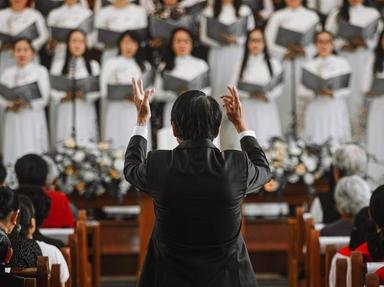Quiz Answer Key and Fun Facts
1. 'Beautiful Isle of Somewhere' was sung at the 1901 funeral of assassinated U.S. President William McKinley. In what American city was McKinley assassinated?
2. 'Faith of Our Fathers' was sung at the funeral of U.S. President Franklin Delano Roosevelt, held in the East Room of the White House in Washington, DC. What year was the funeral?
3. 'Eternal Father, Strong to Save', often called the 'Navy Hymn', was played by a band at the funeral of John Fitzgerald Kennedy. In the second World War, Kennedy was commander of a PT (patrol-torpedo) boat sunk after it was run down by a Japanese destroyer. What was the number of Kennedy's PT boat?
4. 'Our God, Our Help In Ages Past' was sung at the funeral of British statesman Winston Churchill in 1965. What are the two missing words in the second line of the ever-popular hymn?
Our God, our help in ages past,
Our hope for years __________,
5. 'Guide Me, O Thou Great Jehovah' was sung at the funeral of Princess Diana of Wales. In what year did her funeral take place?
6. 'Ho! Reapers of Life's Harvest' was sung at the funeral of assassinated U.S. president James Garfield in 1881. Garfield was born in a state famous for being the home of the Rock and Roll Hall of Fame and Museum. In what state was Garfield born?
7. 'Shall We Gather at the River' was sung at the funeral of American Supreme Court Justice William O. Douglas in 1980. Douglas was born in a state famous for sports teams called the Vikings, Twins, Timberwolves and Wild. What state was he born in?
8. 'Rock of Ages' was sung at funeral of U.S. President Benjamin Harrison and at the funeral of British Prime Minister William Gladstone. Prince Albert of Great Britain also asked for the hymn to be sung to him as he lay dying. What is the missing word in the fourth line of the hymn 'Rock of Ages'?
"Rock of Ages, cleft for me,
Let me hide myself in thee;
Let the water and the blood,
From Thy _______ side which flowed"
9. 'Nearer, My God, to Thee' has, rightly or wrongly, been long associated with the sinking of the Titanic. However, words of the hymn were also among the final words of a U.S. president who died as a result of complications caused by an assassination attempt. Who was the president?
10. 'I Vow to Thee, My Country' was sung at both Princess Diana's wedding and her funeral.
Source: Author
Cowrofl
This quiz was reviewed by FunTrivia editor
agony before going online.
Any errors found in FunTrivia content are routinely corrected through our feedback system.

